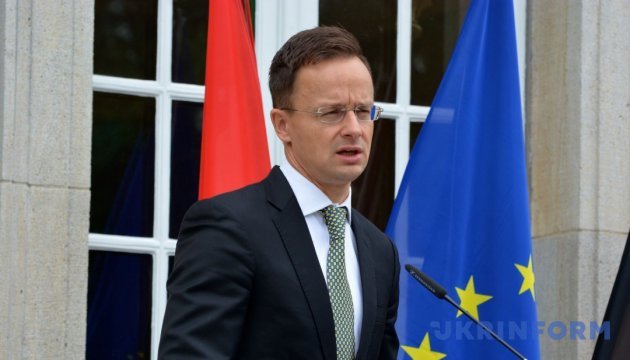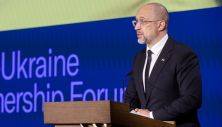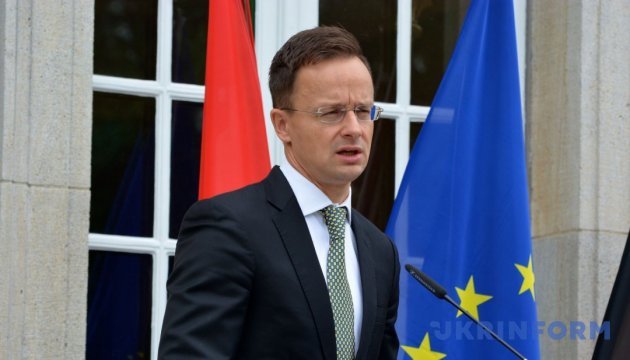
Photo from Ukrinform
“There is a fundamental principle from which we go: under international law, the rights of minorities already granted to minorities cannot be reduced, and if to this end, the presence of 10 percent of Hungarians in a settlement or in the district allowed the language of this minority to be official, and the new law would raise this bar to 33 percent, that of course, we will resist,” said Hungarian foreign minister, Peter Szijjarto, in an interview with Yevropeiska Pravda.
According to the diplomat, Hungary understands that the Ukrainian government seeks to reduce Russian influence, including adopting a law on language. However, Budapest does not agree that it should affect the Hungarian community.
“I have one question: if we are talking about the Russian language, how did we, Hungarians, appear in this picture? We want to get out of there. I have a strong feeling that Hungary has just got caught up in the crossfire, but whether it was intentional or not, Ukraine’s actions have a negative impact on us,” Szijjarto stated.
More than a 100 thousand Hungarians live in Zakarpattya region in western Ukraine.
Szijjarto has been one of Ukraine’s fiercest critics since September last year, when the Ukrainian parliament approved a legislation that increases the use of Ukrainian language in the country’s state schools. Although the new language law was aimed mostly at cutting the influence of the Russian language, it angered many of Ukraine’s neighboring countries, who saw it as a move to suppress their national languages. While tensions with Poland and Romania on this issue have been resolved diplomatically, Russia and Hungary have been using the language law to claim Ukraine is discriminating against national minorities.
Hungary prefers the 2012 language law, dubbed “the Kivalov-Kolisnichenko law,” which allowed a national minority’s language to be granted official status in regions where a minority accounts for up to 10 percent of a region’s population. However, it was canceled in February after a court in Ukraine ruled it to be unconstitutional.













